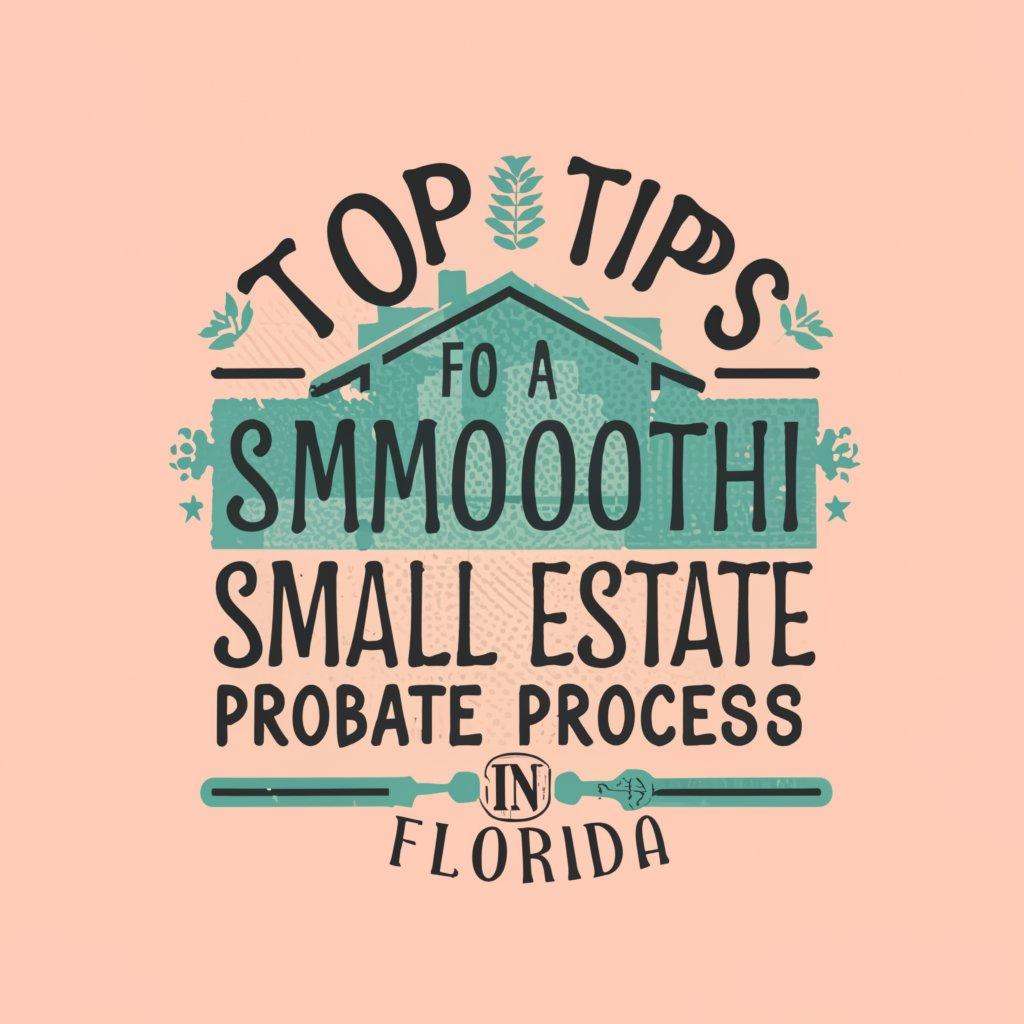Navigating the probate process can be a daunting task, especially for those dealing with a small estate. However, with the right knowledge and guidance, it doesn’t have to be overwhelming. In Florida, the probate process for Small estate probate in florida can be relatively straightforward if you understand the steps involved and how to navigate them effectively. Whether you’re a beneficiary, executor, or someone interested in buying an interest in a small estate in Florida, this guide will provide you with valuable tips to ensure a smooth probate process.
What is Probate and Why Does it Matter?
Probate is the legal process of administering the estate of a deceased person, resolving any outstanding debts, and distributing the remaining assets to the rightful beneficiaries. In Florida, probate is necessary to transfer ownership of assets from the deceased person to their beneficiaries or heirs. While the probate process can vary depending on the size of the estate and whether the deceased had a will, it generally involves several steps such as identifying and inventorying assets, paying debts and taxes, and distributing assets to beneficiaries.
For small estates in Florida, probate may be simplified compared to larger estates. Small estates are those with a total value of $75,000 or less, excluding the value of the decedent’s homestead property. The small estate probate process in Florida allows for a more streamlined administration, making it quicker and less costly than traditional probate proceedings.
Who is Involved in the Small Estate Probate Process?
Several parties may be involved in the small estate probate process in Florida:
Executor or Personal Representative: The person responsible for managing the estate and ensuring that the deceased person’s wishes are carried out according to Florida law.
Beneficiaries: Individuals or entities named in the decedent’s will or determined by Florida’s intestacy laws to inherit the assets of the estate.
Creditors: Individuals or entities to whom the decedent owed debts or obligations.
Interested Parties: Anyone with a legal interest in the estate, including heirs, devisees, and creditors.
Court: The probate court in the county where the deceased person resided at the time of their death oversees the probate process and ensures that it is conducted according to Florida law.
How to Navigate the Small Estate Probate Process in Florida: Navigating the small estate probate process in Florida can be simplified by following these top tips:
Determine if the Estate Qualifies as a Small Estate: Before initiating the probate process, it’s essential to determine whether the estate qualifies as a small estate in Florida. As mentioned earlier, a small estate is one with a total value of $75,000 or less, excluding homestead property. If the estate meets this criterion, you can proceed with the simplified probate process.
Obtain the Necessary Documents: Gather all relevant documents related to the deceased person’s assets, debts, and estate planning documents, such as their will, trust documents, bank statements, property deeds, and life insurance policies. These documents will be crucial for identifying and inventorying the assets of the estate.
File the Necessary Forms with the Probate Court: To initiate the small estate probate process in Florida, you will need to file the necessary buy my interest forms with the probate court in the county where the deceased person resided. These forms may include a Petition for Administration of a Small Estate and an Inventory of Assets. Consult with an attorney or legal expert to ensure that you complete and file the forms correctly.
Notify Creditors and Pay Debts: As part of the probate process, you must notify creditors of the deceased person’s passing and any outstanding debts owed by the estate. Creditors typically have a limited time to file claims against the estate. Once claims are validated, debts must be paid using estate assets before distributing any remaining assets to beneficiaries.
Distribute Assets to Beneficiaries: Once debts and taxes have been paid, the remaining assets of the estate can be distributed to the beneficiaries according to the terms of the decedent’s will or Florida’s intestacy laws if there is no will. Make sure to obtain receipts or waivers from beneficiaries acknowledging receipt of their inheritance to protect the executor from potential disputes in the future.
Consider Selling Your Interest in the Small Estate: If you are a beneficiary of a small estate in Florida and wish to sell your interest in the estate, consider reaching out to reputable buyers like BuyMyInterest.com. Selling your interest in a small estate can provide you with immediate liquidity without having to wait for the probate process to conclude. Additionally, it can simplify the distribution process for other beneficiaries and help avoid potential conflicts.
Conclusion
Navigating the buy my interest | Small estate probate in florida doesn’t have to be overwhelming. By understanding the steps involved and following these top tips, you can ensure a smooth and efficient probate process for your small estate. Whether you’re an executor, beneficiary, creditor, or someone interested in buying an interest in a small estate, proper planning and guidance are key to success. With the right approach, you can navigate the probate process with ease and achieve a favorable outcome for all parties involved.
Remember, if you’re considering selling your interest in a small estate in Florida, BuyMyInterest.com can provide you with a hassle-free solution to liquidate your assets quickly and efficiently.




